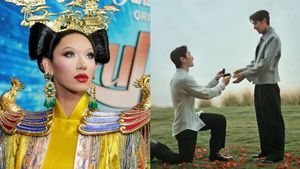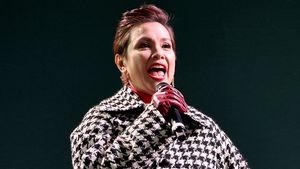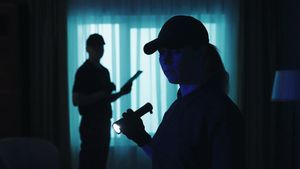The Church of
England's move to accept women bishops further roiled an
already troubled Anglican Communion Tuesday, infuriating
conservatives and complicating efforts to promote
unity with the Roman Catholic Church.
The Church of
England's ruling body on Monday night voted to back women
becoming bishops without giving traditionalist supporters of
male-only bishops the concessions they had sought.
The Right
Reverend Tom Wright, the bishop of Durham and conservative
leader, said the General Synod's decision was muddled, just
like one reached at a meeting of bishops in May.
"We should have
pulled that debate then and there. It was the wrong
time," Wright said.
Monday's decision
also caused consternation at the Vatican. It's "a
further obstacle for the reconciliation between the Catholic
Church and the Church of England," said Cardinal
Walter Kasper, head of the Pontifical Council for the
Promotion of Christian Unity.
More than a dozen
of the 38 national Anglican churches worldwide have
authorized women to serve as bishops, but only four have
appointed or elected a woman to the job.
The Episcopal
Church, the Anglican body in the United States, is led by a
woman, Presiding Bishop Katharine Jefferts Schori.
Disagreement on
the role of women has for years been quietly tolerated
within the worldwide Anglican Communion, a 77
million-member family of churches that trace
their roots to the Church of England.
But the
long-standing divisions over how Anglicans should interpret
the Bible erupted in 2003 when the Episcopal Church
consecrated the first openly gay bishop, V. Gene
Robinson of New Hampshire.
Conservative
Anglicans from Africa and some North American and British
churches are outraged at what they consider a "false gospel"
that has led churches in the U.S., Canada, and
elsewhere to accept gay relationships.
The Anglican
Communion is under intense pressure in the buildup to this
month's Lambeth Conference, a once-a-decade gathering of all
Anglican bishops. Some traditionalist Anglican bishops
are boycotting the meeting, which opens July 16,
because bishops who consecrated Robinson were invited.
The Communion is
the third-largest grouping of churches in the world,
behind Roman Catholics and Orthodox Christians.
In the Church of
England, both sides conceded that the tradition of
male-only bishops would be changed. The lengthy debate
Monday centered on what accommodation would be given
to dissenters.
Hundreds of
traditionalists have threatened to leave the British church
if sufficient safeguards were not put into place for those
who objected. Advocates of women in the episcopate
argue that any concessions would make women
second-class bishops.
Monday night's
vote authorizes a group to draft a code, which will be put
to a vote by the General Synod in February. Further
revisions requiring a vote could happen in 2010.
Then a majority
of dioceses in England would have to agree to having
women as bishops, which would lead to a further vote by the
General Synod in 2011 or 2012.
The synod
rejected forming a third Church of England archdiocese led
by men and voted down another proposal for male
"superbishops" who would assume oversight of parishes
that reject female priests or bishops.
The Archbishop of
York John Sentamu said the Church of England was
wasting time on internal politics and ignoring the problems
of the world outside. "So I am praying very hard the
Holy Spirit of God will breathe a fresh spirit of
understanding into the Church," he said.
The Archbishop of
Canterbury said he did not want to limit the authority
women bishops had within the church. "I am deeply unhappy
with any scheme or any solution to this which ends up,
as it were, structurally humiliating women who might
be nominated," Rowan Williams said Monday.
Church of England
officials say it is unlikely that any woman would be
consecrated as a bishop before 2014. The church has ordained
women as priests since 1994 but hasn't allowed them to
become bishops. (AP)

















































































